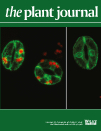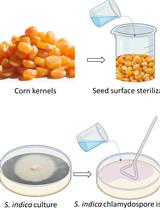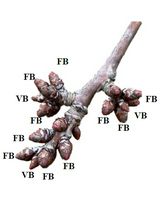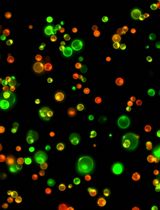- EN - English
- CN - 中文
Bioassays to Investigate the Effects of Insect Oviposition on a Plant’s Resistance to Herbivores
生物测定法研究昆虫产卵对植物抵御食草动物的影响
发布: 2016年06月05日第6卷第11期 DOI: 10.21769/BioProtoc.1823 浏览次数: 13328
评审: Marisa RosaJihyun KimAnonymous reviewer(s)
Abstract
Plants respond to herbivory with diverse defence responses (Schoonhoven et al., 2005). Many herbivorous insects deposit their eggs on their host plants before their larvae start to feed. Thus, plants could use insect eggs as a signal to increase their resistance to herbivores. Here, we report experimental procedures to explore whether and how insect oviposition impacts on plant resistance against the feeding larvae. The described approach revealed that Nicotiana attenuata (N. attenuata) plants that were previously exposed to oviposition by lepidopteran moths respond to herbivory by generalist Spodoptera exigua (S. exigua) and specialist Manduca sexta (M. sexta) larvae with an increased induction of defence responses, which results in a decreased performance or immune state of the feeding larvae (Bandoly et al., 2015; Bandoly et al., 2016). Consequently, insect oviposition can prime feeding-induced plant defence (priming: an enhanced plant response to stress upon the experience of a prior stimulus; Hilker et al., 2015). Full-factorial experiments with standardised procedures for insect oviposition and larval herbivory allow to decipher the effect of the plant exposure to insect eggs on the larval performance, feeding damage and immune state as well as to discriminate egg-induced plant responses from egg-primed responses to larval feeding.
Materials and Reagents
- Reaction tubes, 0.2 ml (e.g., Carl Roth GmbH + Co. KG, catalog number: H560.1 )
- Reaction tubes, 1.5 ml or 2 ml (e.g., Carl Roth GmbH + Co. KG, catalog number: CK06.1 )
- Nicotiana attenuata Torr. ex. Watson (Solanaceae), 4-5 weeks old (rosette stage)
- Spodoptera exigua Hübner (Noctuidae, Lepidoptera) or Manduca sexta Linnaeus (Sphingidae, Lepidoptera)
- Liquid nitrogen
Note: All materials and equipment used is rather general lab equipment or houseware and we just referred to example products we used.
Equipment
- General equipment
- A soft paint brush [e.g., Rotmarder 122A, size 2 (Habico, catalog number: 50122A10 )]
- Featherweight forceps (e.g., Carl Roth GmbH + Co. KG, catalog number: AN00.1 )
- Rearing boxes (e.g., 14 x 21 x 5 cm), lid with gauze (nylon mesh 0.12 mm width)
- Precision balance (e.g., Sartorius AG, model: Sartorius MC210S )
- A soft paint brush [e.g., Rotmarder 122A, size 2 (Habico, catalog number: 50122A10 )]
- Oviposition on plants
- Flight cages [e.g., kweekkooi, 60 x 60 x 90 cm (Vermandel, catalog number: 80.304 ) or flexarium, 42 x 42 x 76 cm (Rolf C. Hagen Inc., Exo Terra, model: PT2552 )]
Note: Flight cages eventually with slots at the cage sides through which defined leaves can be exposed and that can be closed with small claw hair clips. - Hanging labels [e.g., Hängeetiketten, HERMA FACHSHOP, model: 6901 ]] or a thread
- Headlamp (e.g., Petzl, model: PIXA® 3 )
- Flight cages [e.g., kweekkooi, 60 x 60 x 90 cm (Vermandel, catalog number: 80.304 ) or flexarium, 42 x 42 x 76 cm (Rolf C. Hagen Inc., Exo Terra, model: PT2552 )]
- Larval performance, feeding damage and haemolymph sampling
- Vented clip cages [e.g., made of two dressing cups (e.g., Ø 7.03, 2.3 cm (KIV-KREIS, catalog number: 770405509 )) with polyurethane foam at the rims, the bottom of one cup is replaced by gauze (nylon mesh 0.12 mm width) and the cage can be closed with small claw hair clips]
- Folding magnifier [e.g., TRIPLET 20x, 21 mm (Light In The Box Ltd., catalog number: 01239576 )]
- Laboratory support stand with clamps
- Whiteboard with reference areas (e.g., a laminated sheet of white paper with black squares of 1 x 1 cm)
- Camera [e.g., Canon EOS 1200D (Canon Inc., model: Canon EOS 1200D ) with EFS 18-25 mm macro lenses (Canon Inc., model: Canon EF-S 18-55mm f/3.5-5.6 IS II)]
- Vented clip cages [e.g., made of two dressing cups (e.g., Ø 7.03, 2.3 cm (KIV-KREIS, catalog number: 770405509 )) with polyurethane foam at the rims, the bottom of one cup is replaced by gauze (nylon mesh 0.12 mm width) and the cage can be closed with small claw hair clips]
- Standardised damage and harvest of leaf tissue for analyses of plant defence traits
- Vacuum pump (e.g., Vacuubrand, model: PC 510 )
- Teflon tube [e.g., outer Ø 1.6 mm (VWR International, catalog number: BOHLS1810-01 )]
- Glass vial with rubber septum cap [e.g., 4 ml HPLC vial (Techlab, catalog number: FLK 101.243 and FLK 101.972 )]
- Tracing/Pattern wheel (e.g., Nähmit, catalog number: 070210 )
- 10 µl pipette
- Scalpel (e.g., Carl Roth GmbH + Co. KG, catalog number: X004.1 )
- Dissecting forceps (e.g., Carl Roth GmbH + Co. KG, catalog number: 2690.1 )
Procedure
文章信息
版权信息
© 2016 The Authors; exclusive licensee Bio-protocol LLC.
如何引用
Bandoly, M. and Steppuhn, A. (2016). Bioassays to Investigate the Effects of Insect Oviposition on a Plant’s Resistance to Herbivores. Bio-protocol 6(11): e1823. DOI: 10.21769/BioProtoc.1823.
分类
植物科学 > 植物生理学 > 植物生长
植物科学 > 植物生理学 > 生物胁迫
您对这篇实验方法有问题吗?
在此处发布您的问题,我们将邀请本文作者来回答。同时,我们会将您的问题发布到Bio-protocol Exchange,以便寻求社区成员的帮助。
Share
Bluesky
X
Copy link















